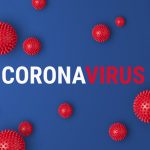

Coronavirus testing to be expanded to GP practices nationwide

According to the latest announcement from the Scottish Government, Orkney remains one of only three health board regions in Scotland to have no test-confirmed cases of COVID-19 coronavirus.
Though previous reports from the government and the NHS indicated that testing for the virus was to be scaled back, Scotland’s chief medical officer has said today, Sunday, that it will be expanded in order to monitor the spread of the disease.
As of today’s figures, there have been 153 positive tests up from 121 recorded in Scotland — up from 121 yesterday — and over a thousand confirmed cases across the UK.
The Orcadian has requested further information about how many tests have been undertaken in the county. NHS Orkney and the Scottish Government have previously indicated, however, that local testing figures will not be released — unless a positive result is confirmed.
A statement released by the Scottish Government today announced that the programme of testing for coronavirus will be extended to GP practices, covering up to 1.2 million people across all health boards in Scotland.
Folk presenting at practices with relevant symptoms, including with flu-like symptoms or general respiratory illness and underlying health conditions will be tested. The programme will also support the continued testing of people admitted to hospital with symptoms. However, those following the guidance to stay at home for seven days if they have mild symptoms of a new cough or raised temperature will not be routinely tested – and will continue to be advised to only phone NHS 111 or contact the GP if their condition worsens.
NHS Orkney announced yesterday that, GP practices in Orkney will be changing the way they offer and book appointments to reduce the number of patients attending face to face appointments when they do not need to be examined, from Monday, March 16. If your GP Practice has previously offered the ability to book appointments online this will stop with immediate effect.
In a statement on social media, the health authority explained: “If you are experiencing symptoms of COVID-19 (a high fever, new continuous cough or new shortness of breath) you should self-isolate for 7 days avoiding contact with other people wherever possible. If after 7 days or you continue to feel unwell and may need to see a GP, please call and speak to your GP practice.
“Prior to an appointment being made a member of your GP Practice may call you to clarify whether you have symptoms of COVID-19. Following an initial conversation your GP Practice will advise on the most appropriate course of action.
“To support in delaying the spread of COVID-19 we ask that you do NOT attend your GP Practice unless you have been asked to do so.
“All appointment requests, repeat prescription requests and general enquiries should be made by calling your GP Practice.
“If you already have an appointment booked, your Practice will be in contact with you if they need to change your appointment.
“If you are currently being visited by our Community Nursing team you may be contacted to check there is no one in your household showing symptoms of COVID-19.”
The government believes that surveillance testing will provide real-time information on how the virus is spreading in Scotland, which will inform NHS planning and allow resources to be directed where they are needed most. It has confirmed that key workers such as NHS staff will continue to be tested if they show symptoms.
Scotland’s chief medical officer, Dr Catherine Calderwood said: “This new approach to testing will enable us to understand the pattern and spread of coronavirus in the community, to develop a clear assessment of the situation and to predict the peak number of cases, without having to test everyone with possible symptoms.
“Those with mild symptoms do not need to be tested. They should continue to stay at home for seven days and only contact their GP or 111 if their condition worsens.
“Everybody has a role to play in helping contain this outbreak by following the latest health advice and basic hygiene precautions such as washing hands frequently, not touching their face and covering their nose and mouth with a tissue when coughing or sneezing.”